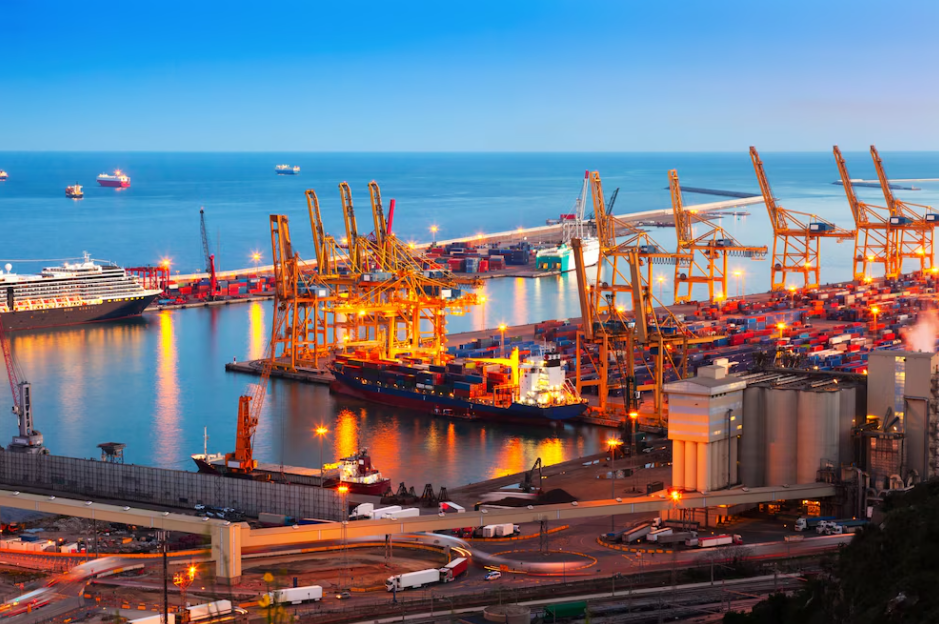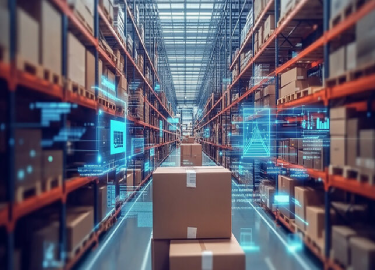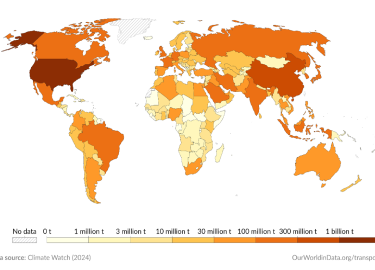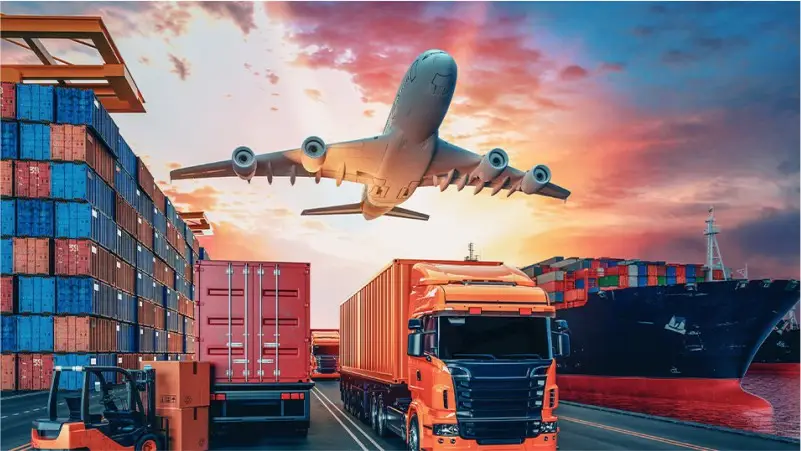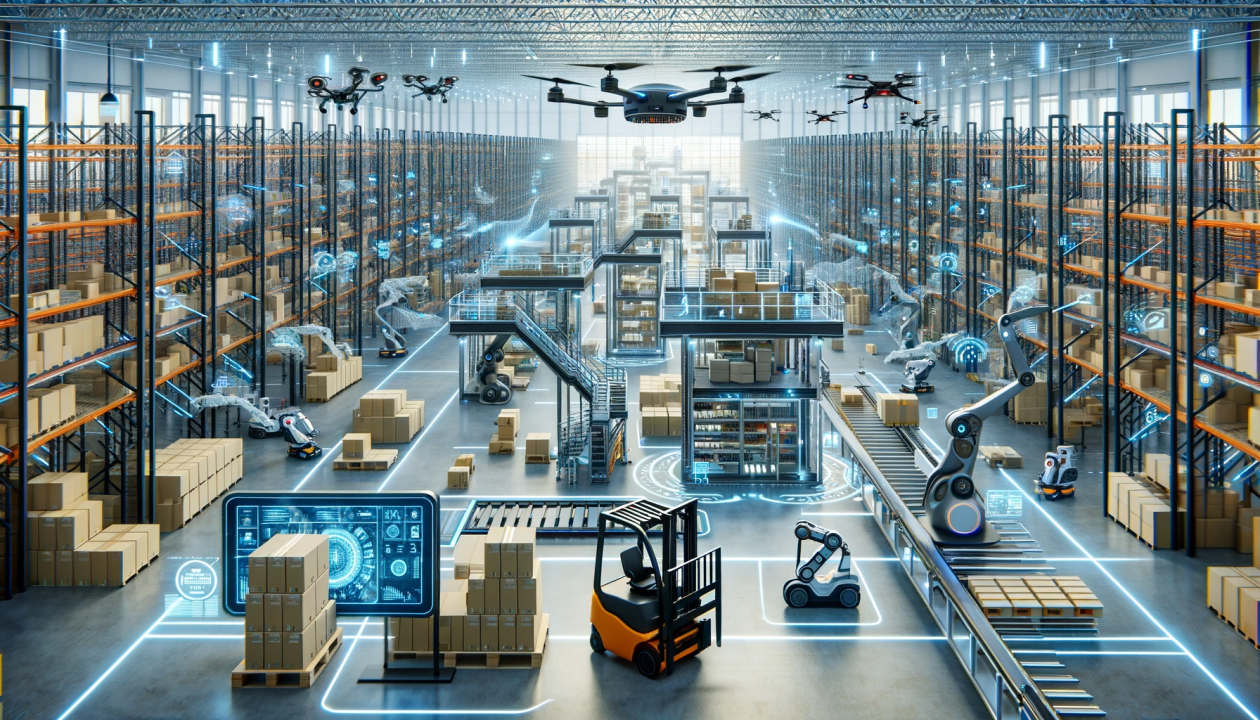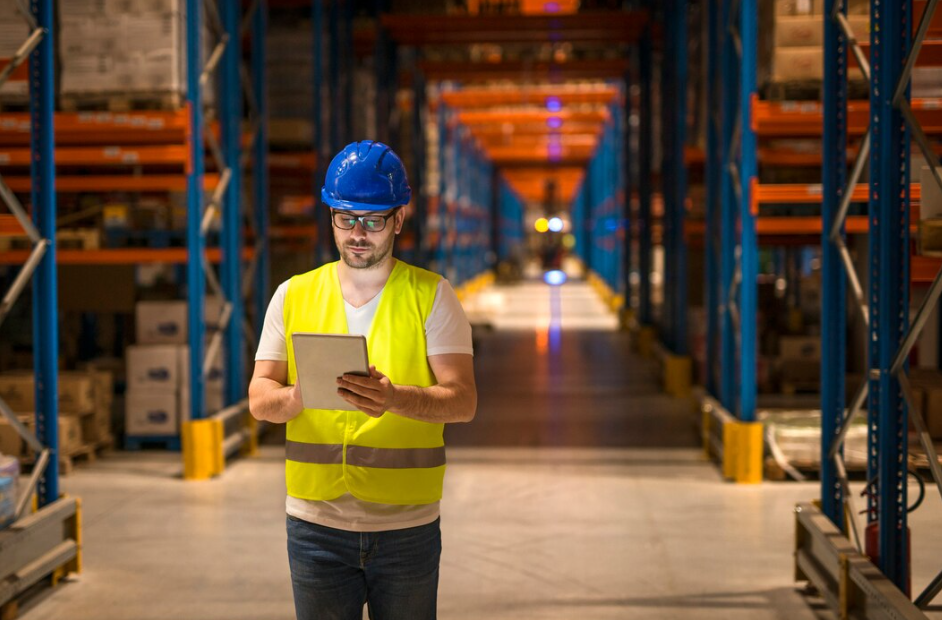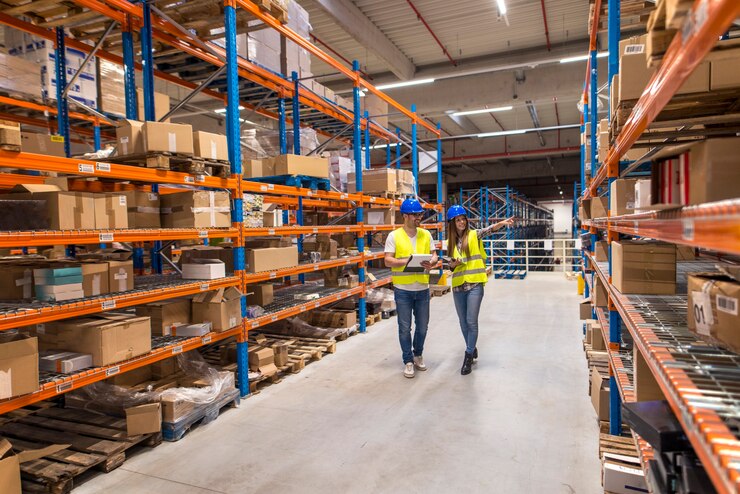- 3PL
- EFL 3PL

Introduction
The logistics industry in Malaysia is rapidly changing, with businesses adopting technology-driven solutions to stay competitive. The digital transformation of third-party logistics (3PL) providers is helping companies to increase efficiency, improve transparency, and meet growing customer demands. By 2025, more than 60% of logistics firms in Malaysia are expected to adopt digital supply chain solutions to streamline operations and reduce costs (Statista, 2025).
This blog explores the key digital advancements shaping the future of 3PL in Malaysia and how businesses can use these innovations for long-term success.
Key Digital Technologies Transforming 3PL
1. Artificial Intelligence (AI) and Automation
AI is reshaping the logistics industry by improving operations such as route planning, predictive maintenance, and demand forecasting. Companies using AI-driven logistics solutions have seen a 15% drop in costs, a 35% reduction in inventory levels, and a 65% increase in service efficiency (SPD Technology, 2024).
2. Internet of Things (IoT) for Real-Time Tracking
IoT-enabled logistics solutions provide real-time shipment tracking and warehouse monitoring, boosting supply chain visibility. In Southeast Asia, the Industrial IoT market is expected to reach US$7.06 billion by 2025, with a compound annual growth rate (CAGR) of 18.93% from 2025 to 2029 (Statista, 2025).
3. Blockchain for Secure and Transparent Transactions
Blockchain technology strengthens supply chain security, prevents fraud, and improves document verification. It creates a secure, transparent, and tamper-proof record of information flows, inventory movements, and financial transactions (Harvard Business Review, 2020).
Benefits of Digital Transformation in 3PL
• Increased Efficiency:
Automation and AI reduce manual tasks, speed up processes and lower costs. 47% of 3PL providers are actively investing in digital solutions to improve efficiency (ElifTech, 2024).
• Improved Customer Experience:
Real-time tracking and automated updates enhance service quality. Digital tools help businesses deliver personalized solutions that meet customer expectations, building loyalty and trust.
• Stronger Compliance and Security:
Digital solutions simplify regulatory processes and reduce risks. Blockchain technology provides secure, transparent, and tamper-proof records in supply chains, strengthening trust and preventing fraud (Invensis, 2024).
Challenges of Implementing Digital Solutions
• High Upfront Costs:
The significant upfront expenses of new technologies, including infrastructure upgrades, deter many businesses from digital transformation, particularly SMEs (Dfreight, 2024).
• Integration Complexities:
Many logistics firms operate with outdated systems, making it difficult to integrate modern digital tools without costly modifications and operational disruptions (VirtualSpirit, 2024).
• Resistance to Change:
Employees and management may be hesitant to adopt digital solutions due to unfamiliarity or concerns over job security. Successful implementation requires comprehensive training and change management strategies (Capital Commerce, 2024).
• Data Security Risks:
As digital adoption grows, logistics firms face a higher risk of cyber threats. Strengthening cybersecurity measures is essential to protect sensitive supply chain data (SeaRates, 2024).
• Workforce Skill Gaps:
The rapid shift toward digital logistics requires a skilled workforce. Many companies struggle to find professionals with expertise in AI, automation, and data analytics, making continuous employee training a critical investment (North IT Group, 2024).
EFL 3PL’s Digital Transformation Journey
EFL 3PL leads the way in integrating advanced technologies to improve supply chain management. By adopting Robotic Process Automation (RPA), the company has streamlined repetitive tasks, boosting efficiency and accuracy. EFL 3PL has implemented RPA across all its distribution centers and Freeport facilities, with the initiative managed entirely in-house by non-IT staff.
In healthcare logistics, EFL 3PL uses Internet of Things (IoT) technology for temperature-controlled storage and transportation, ensuring the safety of medical supplies. Real-time tracking and authentication systems further improve the reliability of pharmaceutical deliveries.
EFL 3PL’s focus on sustainability is reflected in its adoption of eco-friendly technologies, such as electric vehicles and energy-efficient warehouse systems, helping to lower the carbon footprint of distribution center operations.
By integrating these digital solutions, EFL 3PL delivers efficient and reliable logistics operations, strengthening its role as a trusted 3PL provider.
Conclusion
The future of logistics in Malaysia is driven by digital innovation. Businesses that adopt automation, AI, and data-driven decision-making will stay ahead in a rapidly evolving market. Now is the time to work with a trusted 3PL provider that integrates digital solutions to enhance efficiency.
Learn more about how EFL 3PL’s smart logistics solutions can support your business.
Is your supply chain ready for the future? Contact EFL 3PL today to explore customized digital solutions tailored to your needs.



